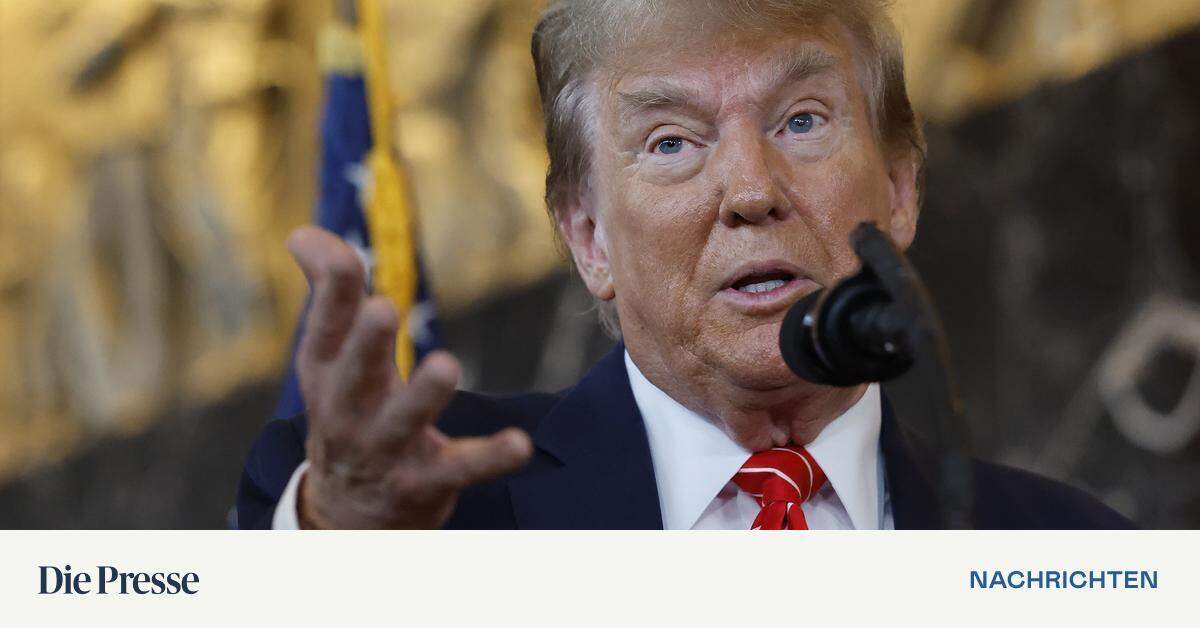The start of the trial in March was cancelled. The background to this are open legal questions in this case. Donald Trump, who wants to run again as a Republican Party candidate in the presidential elections scheduled for November, faces four criminal cases in the middle of the election year.
Former US President Donald Trump's trial on charges of attempted election fraud is set to begin later than scheduled. On Friday (local time), the responsible federal court in Washington, D.C., announced the postponement of the start of the trial, which was scheduled to take place on March 4. A new date will be set at a later time. The background to this are open legal questions in this case.
Trump, who wants to run again as a Republican candidate in the presidential elections scheduled for November, faces four criminal cases in the middle of the election year. In the case filed in Washington, federal charges were brought against the 77-year-old over his efforts to overturn the result of the 2020 presidential election. Trump lost the election to Democrat Joe Biden, but he still does not concede his defeat to this day. Instead, Trump tried in various ways to change the outcome of the election later. His campaign against the election result culminated in an unprecedented violent attack launched by his supporters on the US Capitol building on January 6, 2021.
The indictment charged Trump with four formal charges, including conspiracy against the United States. If convicted, he could face a long prison sentence. Trump denies all accusations and considers the prosecution against him to be an attempt by his political opponents to prevent him from running for another term. According to experts, a conviction would not legally prevent the Republican from running in the November elections – especially since it is highly doubtful whether a legally binding ruling will be available by then.
Does it protect the office of president from prosecution?
The trial in Washington is one of four facing the Republican presidential nominee. Trump has also been indicted on various charges in New York, Miami and Atlanta. He is the first former president in the history of the United States to face trial for alleged crimes.
In the case of election fraud in Washington, Trump recently raised a fundamental legal issue that still needs clarification. In light of this, it was already expected that the process would be delayed. The question is whether the office of president protects against criminal prosecution. The Washington Court of Appeals is currently still dealing with this clarification. A decision must be made about whether the Republican can be prosecuted at the federal level — or whether he is protected by immunity as a former president. The decision in this regard is still pending.
Much depends on the decision on the issue of immunity. On the one hand, this means that the charge against Trump of trying to rig the election is stand or fall. The result is also crucial for the election campaign. Last but not least, the decision to protect against criminal prosecution is of great importance to future presidents. If they truly enjoy immunity, they may commit crimes while in office without having to fear the consequences. (APA/DPA)

“Food practitioner. Bacon guru. Infuriatingly humble zombie enthusiast. Total student.”







More Stories
KaDeWe stops selling meat and sausages
Another earthquake near the giant Naples volcano
Trump wants to block Harris' access to donations